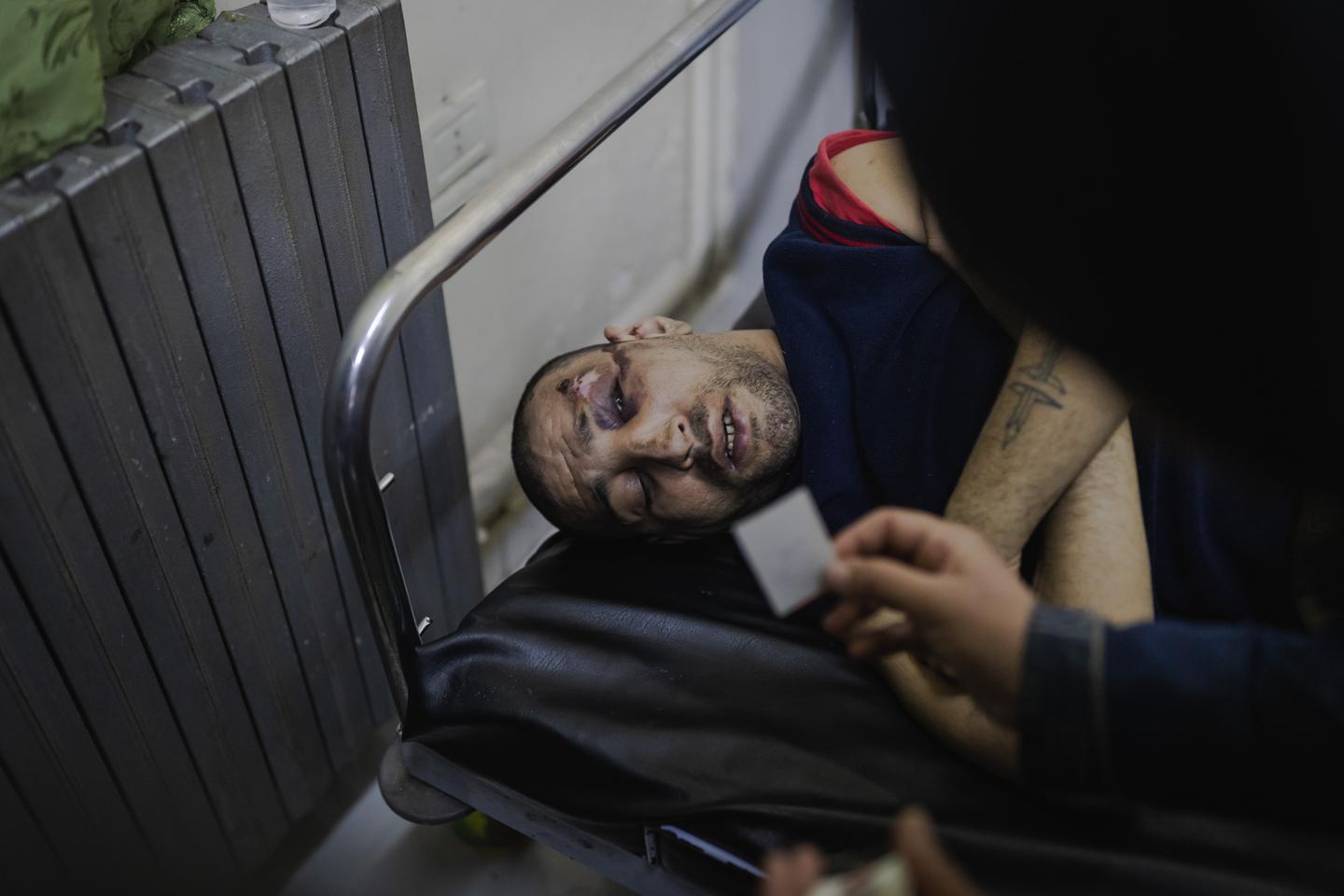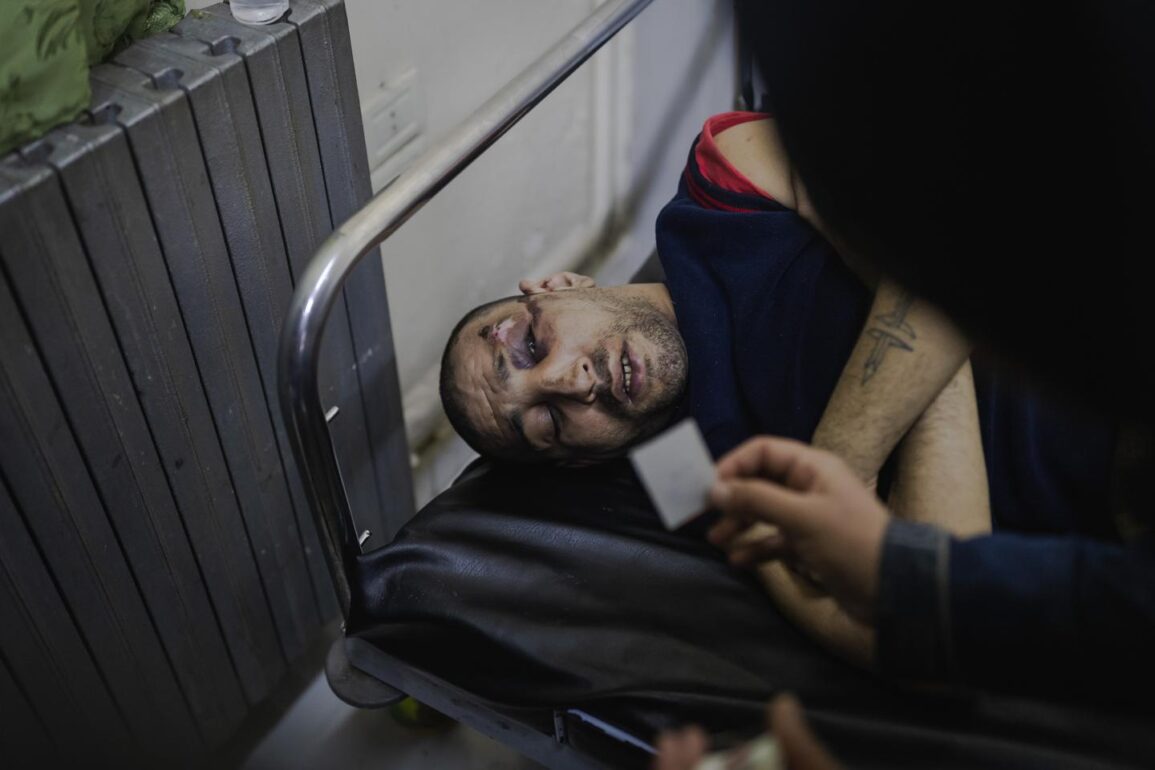
The man lay, as if stuck between the world of the dead and that of the living, on a black leather stretcher in Ibn al-Nafees hospital, in the Barzeh district of northern Damascus, on Tuesday, December 10. With his head resting on the palm of his hand, his gaze was lost in the distance and his mouth hung slackly open. His left eye was swollen, his nose marred by an old fracture. Other fractures to his spine and skull have shattered his fragile, malnourished body. A skin disease had spread over his legs.
Around 15 people surrounded him, some with telephones in hands, showing photos of loved ones who, like him, had disappeared one day into the Assad regime’s hellish prison system – and had not yet emerged. “Have you seen my sons? Bassem and Ahmed Alala,” shouted a Syrian man in his fifties, who thrust forward a photo of his two children, in their twenties, taken before they disappeared 10 years ago.
“He can’t even remember his own name,” said a doctor, who struggled to hold back the people crowding around the man. When he sometimes came to his senses, the ailing man, in his thirties, would ramble incoherently. “His name is Khaled Badawi. He was a soldier and deserted. He was arrested two years ago in Aleppo and transferred to Saydnaya [prison]. We hadn’t heard from him since then,” said his brother, Tarek, who sat at the foot of his bed.
When he recognized him, the day before, on a video shared on Facebook, Tarek immediately set off, together with his whole family, from Aleppo, located 350 kilometers to the north. Only Khaled Badawi’s two children, aged 3 and 5, and their mother, from whom he was separated, stayed back in Aleppo. “We’re happy to have him back. He’s doing a bit better than yesterday,” continued Tarek. Two of their cousins, aged 24 and 34, were still missing, 10 years after they were arrested at a security checkpoint.
You have 79.45% of this article left to read. The rest is for subscribers only.
This post was originally published on this site be sure to check out more of their content.







